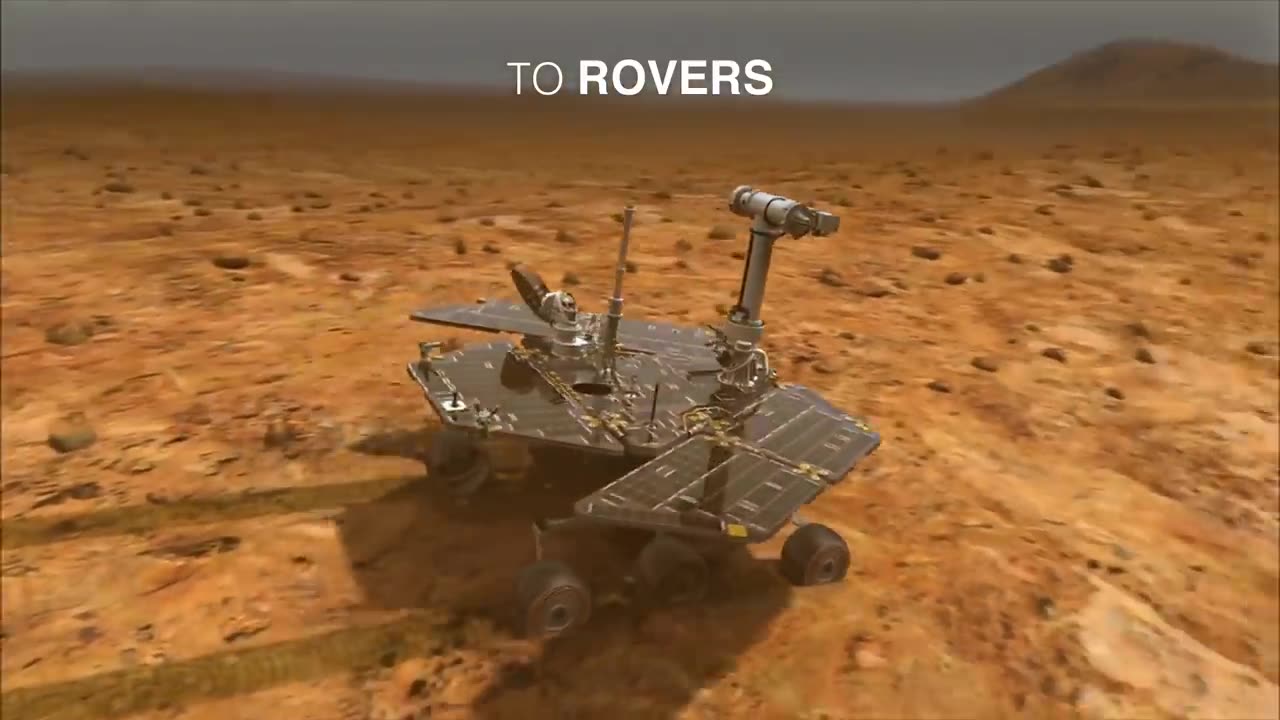Premium Only Content

"Exploring Mars: What You Need to Know
Mars, the fourth planet from the Sun, has captured the imagination of humanity for centuries. With its reddish hue and the potential for harboring signs of past or present life, Mars remains a focal point of scientific research and space exploration. To better understand this intriguing planet, there are several key aspects you should know:
Surface and Atmosphere: Mars is characterized by its rusty-red surface, owing to the iron-rich dust and rocks that cover it. Its thin atmosphere primarily consists of carbon dioxide, making it vastly different from Earth's. The planet is also home to remarkable features, including the largest volcano in the solar system, Olympus Mons, and a massive canyon known as Valles Marineris.
Water on Mars: Scientists have discovered evidence of liquid water having existed on Mars' surface in the past. This has led to speculation about the possibility of ancient Martian life. Recent research suggests that water might still be present underground, raising the exciting prospect of potential habitats for microbial life.
Mars Rovers: Several robotic missions, including the rovers Spirit, Opportunity, Curiosity, and the more recent Perseverance, have been sent to explore Mars' surface. These rovers have provided invaluable insights into the planet's geology, climate, and potential habitability.
Human Exploration: There is ongoing interest in sending humans to Mars. Organizations like NASA and private companies are actively working on plans for crewed missions to the Red Planet. However, the challenges of the long journey, harsh environment, and life support systems remain significant hurdles to overcome.
Atmospheric Conditions: Mars' thin atmosphere means that its surface experiences extreme temperature variations, from scorching daytime temperatures to frigid nights. Dust storms are also a common occurrence and can sometimes cover the entire planet, affecting solar-powered rovers' functionality.
Moons of Mars: Mars has two small moons, Phobos and Deimos. These irregularly shaped moons are thought to be captured asteroids and are much smaller than Earth's moon.
Scientific Significance: Studying Mars provides insights into the planet's geological history, potential for past or present life, and the broader understanding of planetary evolution. Comparing Mars to Earth helps us learn more about our own planet's history and future.
In conclusion, Mars continues to captivate humanity as a potential window into the origins of life and the possibilities of interplanetary exploration. With ongoing advancements in space technology, our understanding of this enigmatic planet is evolving, bringing us closer to unraveling the mysteries that Mars holds.
-
 LIVE
LIVE
The Jimmy Dore Show
2 hours agoOracle CEO Larry Ellison Says AI Will Force You To BEHAVE! MORE Layoffs at CNN! w/Sarah Choujounian
16,117 watching -
 LIVE
LIVE
Nerdrotic
3 hours ago $5.19 earnedHollywood LOST the Culture War! Star Trek Section 31, Disney Lies! | Friday Night Tights #338 w RMB
6,073 watching -
 1:00:03
1:00:03
Candace Show Podcast
3 hours agoWOAH! Daily Wire CEO Shares HARSH Feelings About Brett Cooper | Candace Ep 138
57.8K111 -
 LIVE
LIVE
Dr Disrespect
7 hours ago🔴LIVE - DR DISRESPECT - TRIPLE THREAT CHALLENGE - NOBODY STOPS US
3,456 watching -
 1:54:45
1:54:45
Twins Pod
4 hours agoMAGA P***star is HATED By Conservatives AND Leftists... | Twins Pod - Episode 49 - Brandi Love
31.7K31 -
 15:45
15:45
inspirePlay
1 hour agoLong Drive Showdown: Martin Borgmeier vs. 3 of the World’s Longest Female Golfers at 8,000+ Yards!
93 -
 1:01:19
1:01:19
PMG
20 hours agoWere the California Fires Intentional & Shocker - the Vax May Cause Long COVID
5712 -
 39:53
39:53
Bare Knuckle Fighting Championship
1 day agoBKFC KNUCKLEMANIA V PHILADELPHIA Weigh-In | LIVE!
8731 -
 LIVE
LIVE
Scammer Payback
3 hours agoCalling Scammers Live
307 watching -
 1:10:38
1:10:38
Awaken With JP
4 hours agoJFK Files to be Released! Trump’s Boss Move - LIES Ep 75
47.2K39